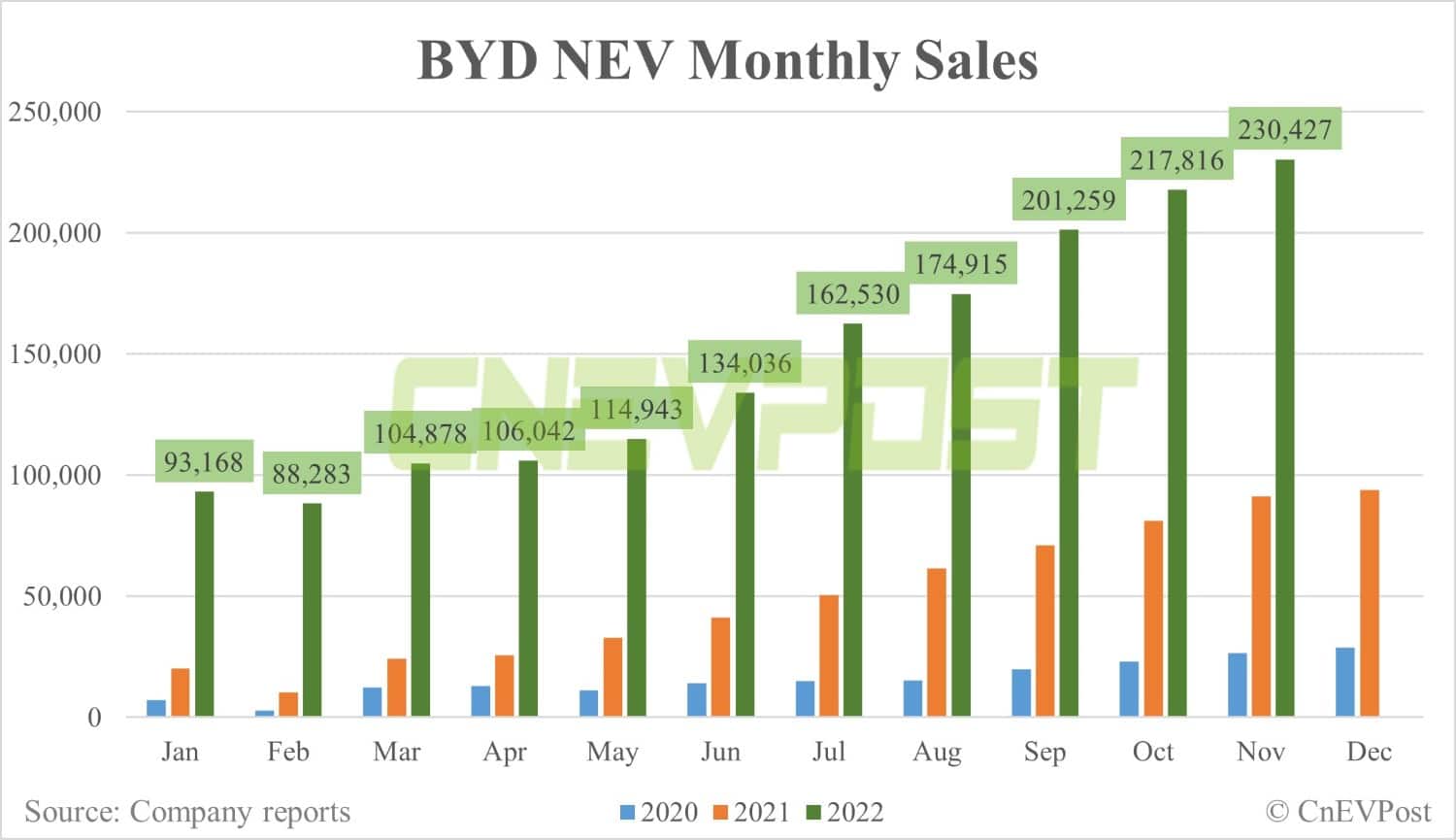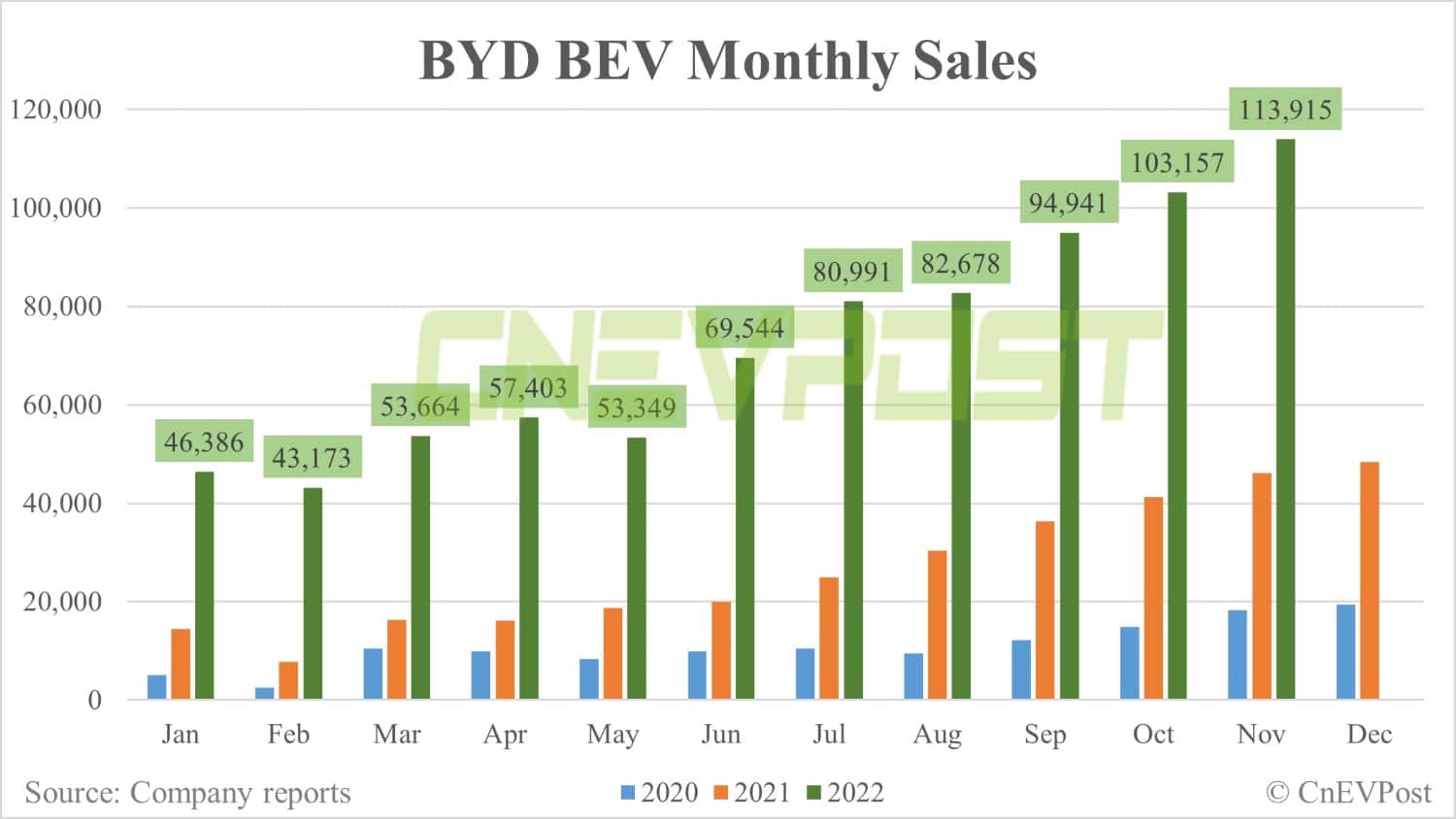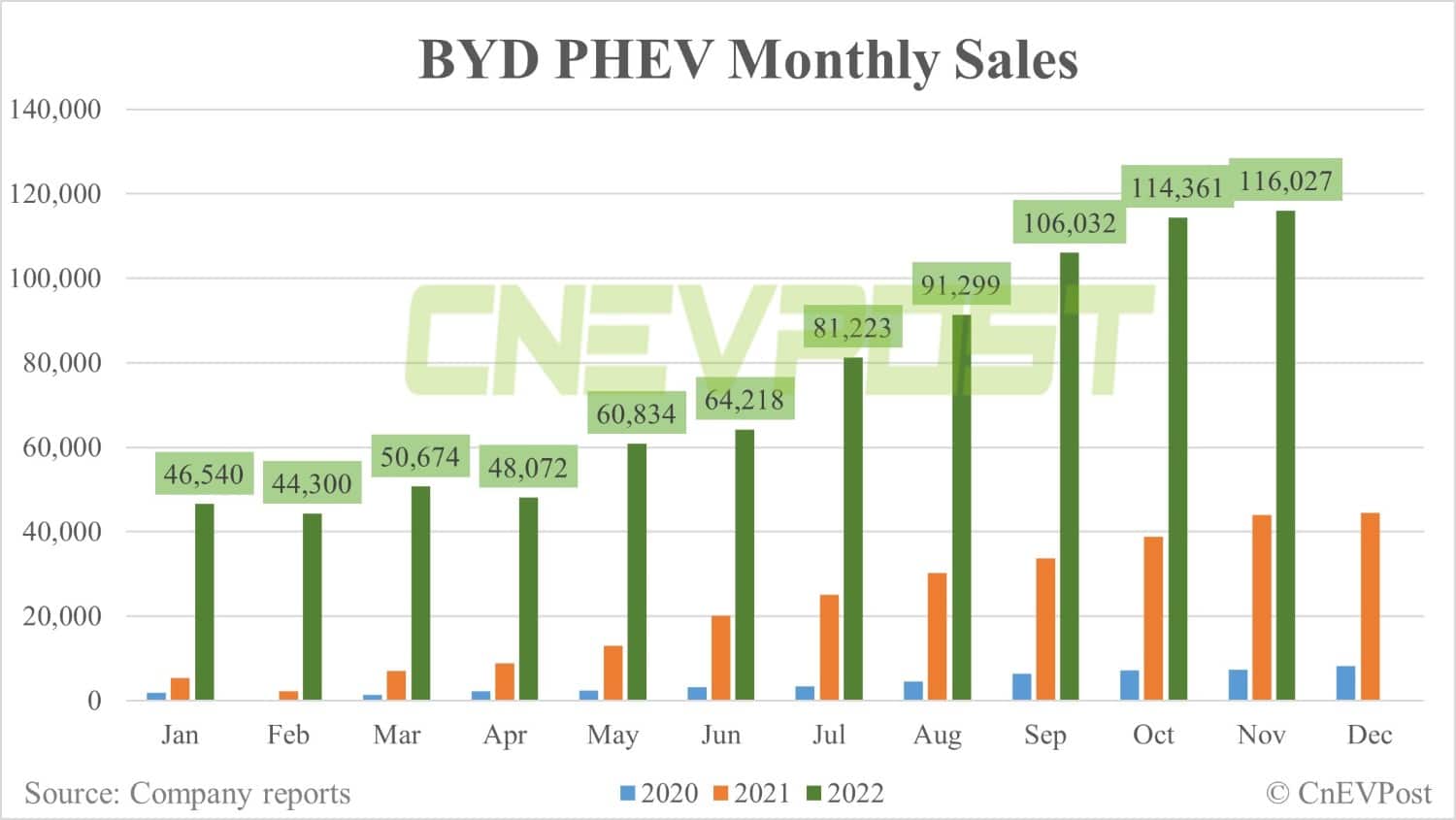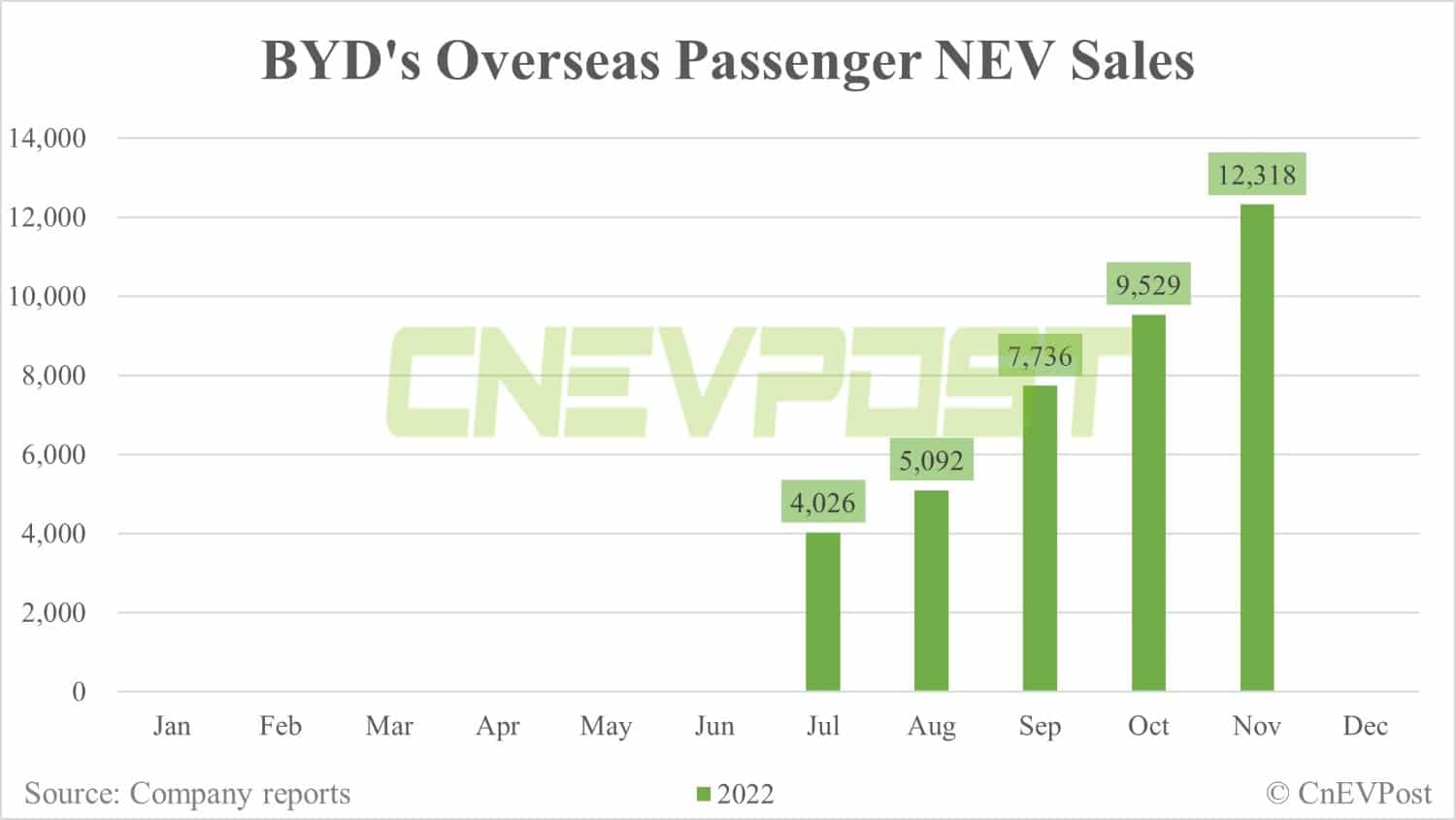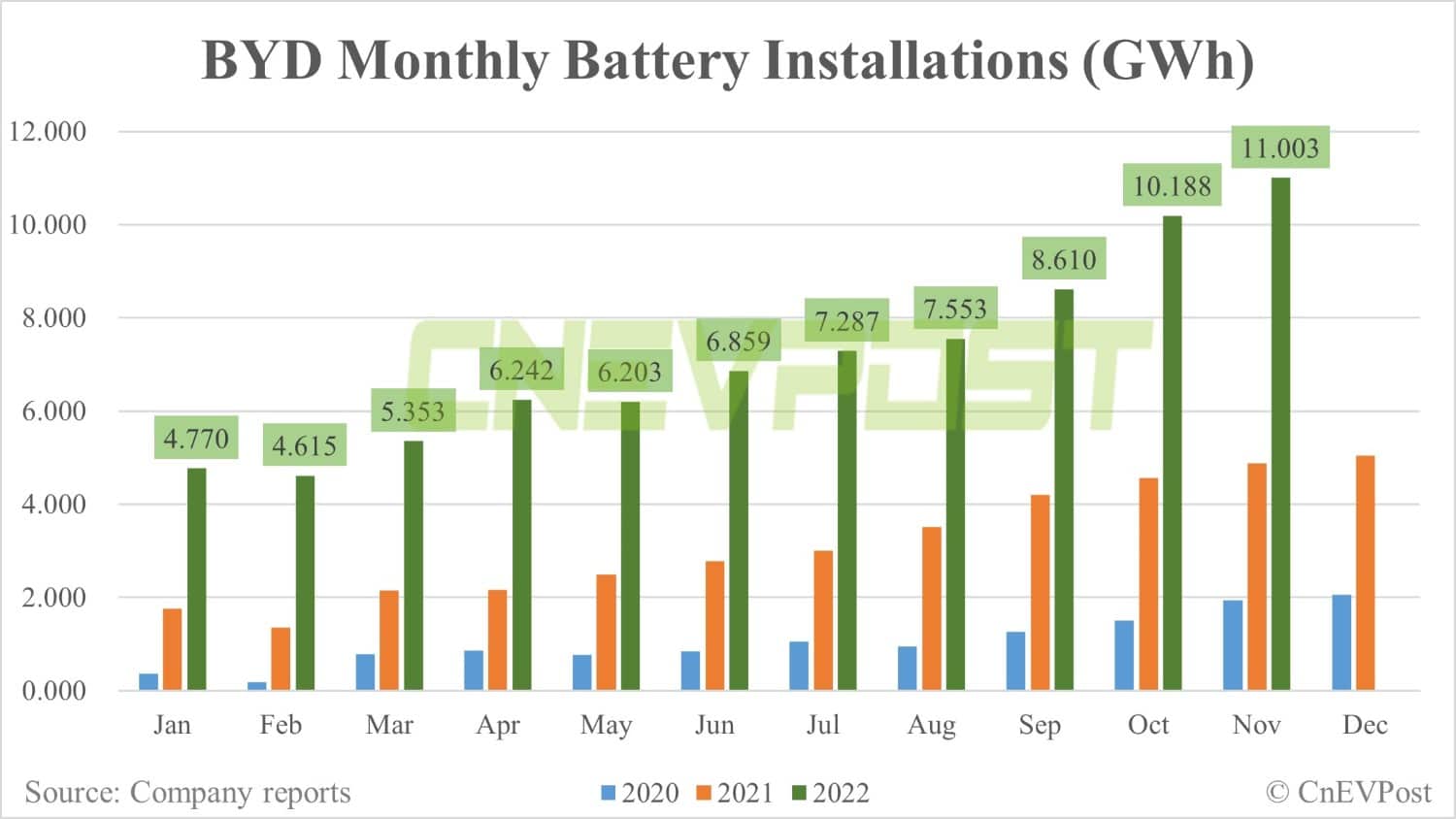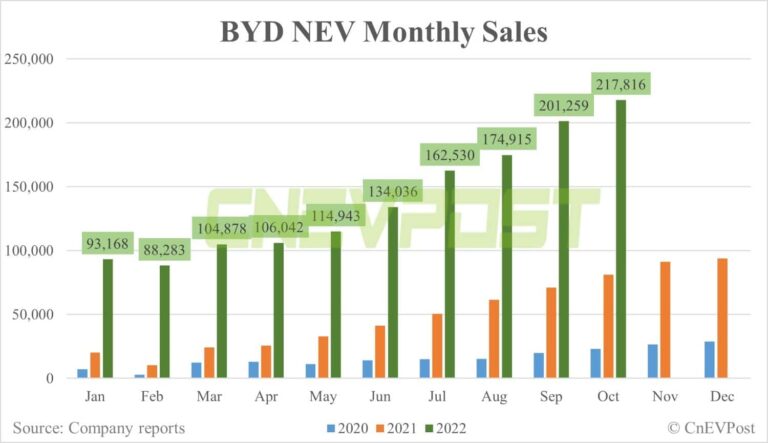BYD sold 113,915 BEVs and 116,027 PHEVs in November.
BYD sold 230,427 new energy vehicles (NEVs) in November, a new all-time high and the third consecutive month of over 200,000 units.
That's up 152.61 percent from 91,219 units in the same month last year and up 5.8 percent from 217,816 units in October, according to an HKEX announcement today.
BYD stopped production and sales of vehicles powered entirely by internal combustion engines in March, and all of its vehicles are now NEVs, including passenger cars as well as commercial vehicles, and they sold 229,942 units and 485 units in November, respectively.
Among these passenger cars, sales of battery electric vehicles (BEVs) were 113,915 units, up 146.91 percent from 46,137 units in the same month last year. Plug-in hybrid vehicles (PHEVs) were 116,027 units, up 163.79 percent from 43,984 units in the same period last year.
In November, BYD sold 12,318 NEVs in overseas markets, up 29.27 percent from 9,529 units in October. The company first announced overseas sales figures for NEVs in July.
From January to November, BYD's cumulative NEV sales were 1,628,297 units, up 219.38 percent from 509,838 units in the same period last year.
BYD's year-to-date sales of passenger BEVs were 799,201 units, up 193.29 percent from 272,493 units in the same period last year.
It sold 823,580 passenger PHEVs in the first 11 months, up 260.54 percent from 228,429 units in the same period last year.
In addition to being China's largest NEV maker, BYD is also the country's second-largest power battery manufacturer.
BYD's installed capacity of power batteries and energy storage batteries in November was about 11.003 GWh, up 125.33 percent from 4.883 GWh in the same month last year and up 8 percent from 10.188 GWh in October.
On November 23, BYD announced an increase in the official guide prices of Dynasty and Ocean series models, as well as Denza-branded models, ranging from 2,000 yuan to 6,000 yuan ($840), effective January 1, 2023.
BYD said this is because China's NEV purchase subsidies will expire on December 31, while the prices of key raw materials, including batteries, have risen sharply since the second half of the year.
